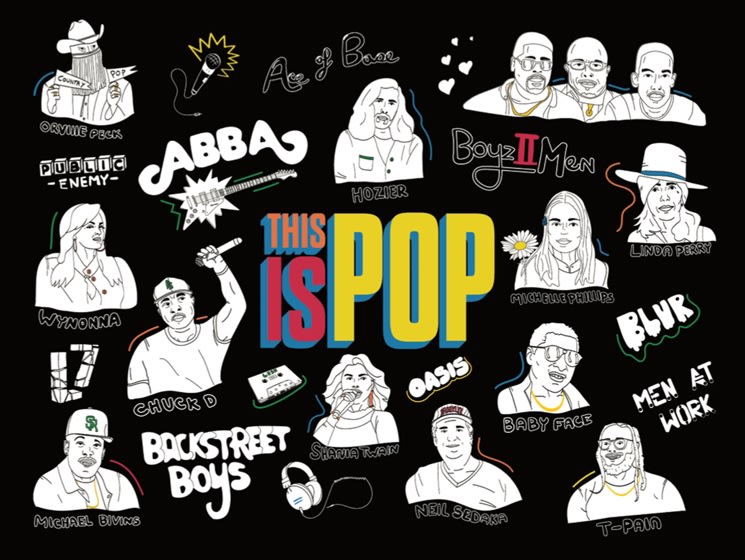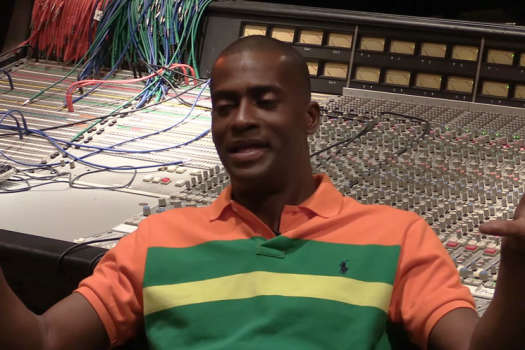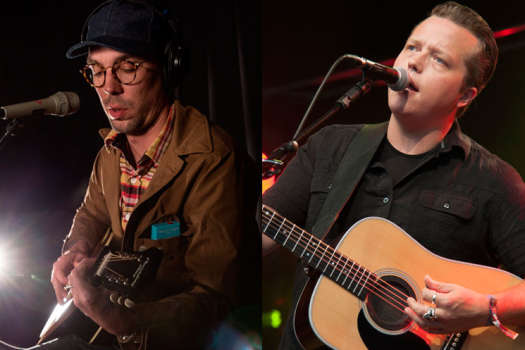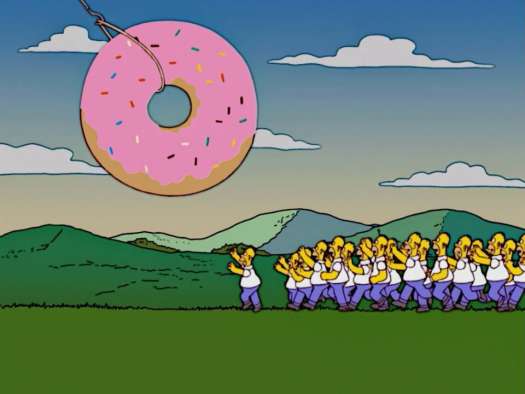This Is Pop's eyes are bigger than its stomach. In just eight episodes, this Canadian-produced show sets its scope on the entirety of pop music history, spanning about 70 years and zeroing in on key moments along the way. You could spend a lifetime studying this stuff and never get to the end, so trying to cover it in a limited series is no small feat.
Perhaps that's why This Is Pop makes a few head-scratching choices along the way. In particular, an episode about New York's Brill Building ends up being a string of half-remembered anecdotes about long-forgotten songs, all amounting to little more than "the spirit of collaboration was great." It probably sounded interesting when the show was having pitch meetings, but it certainly doesn't translate.
Many of the episodes fall a little flat — seemingly the result of questionable writing and planning, rather than poor execution. An episode called "Hail Britpop!" pretty much just recaps the whole Blur vs. Oasis thing and should have been titled "Wait, Why Are We Talking About Britpop Right Now?" An episode about protest music called "What Can a Song Do?" doesn't even come close to answering its titular question, and mostly just highlights the ways the world is more broken than ever. An episode about music festivals bites off way more than it can chew, starting its story in the late '60s (at least a decade after the first Newport Folk Festival, to mention one notable oversight) and then bizarrely omitting Coachella.
Show creators Banger Films get decent access to major stars: members of bands like Blur, ABBA, Backstreet Boys, Ace of Base and Public Enemy offer interesting insight. An excellent episode about autotune uses extensive interviews with T-Pain to follows his sudden rise, swift backlash and eventual redemption (even if Mark Ronson's far-superior Watch the Sound already covered similar subject matter). Shania Twain and Orville Peck are perfect characters in an episode about the blurry line between country and pop.
There are some glaring omissions, however: Max Martin isn't interviewed in the episode about Sweden, even though he's the central figure in the show's thesis about the country's pop music pervasiveness. Presumably the producers tried to get Kendrick Lamar for the episode about protest songs, but the best they could manage was a string of dull voiceovers from fucking Hozier, of all people.
This Is Pop will definitely give viewers a few interesting anecdotes to tell at parties, and it's open-minded approach to pop music — specifically the way it dismantles the idea of "authenticity" in the country and autotune episodes — is compelling. But if the show makes it to a second season, it's going to need to consider how to whittle down its vast subject matter.
(Banger Films)Perhaps that's why This Is Pop makes a few head-scratching choices along the way. In particular, an episode about New York's Brill Building ends up being a string of half-remembered anecdotes about long-forgotten songs, all amounting to little more than "the spirit of collaboration was great." It probably sounded interesting when the show was having pitch meetings, but it certainly doesn't translate.
Many of the episodes fall a little flat — seemingly the result of questionable writing and planning, rather than poor execution. An episode called "Hail Britpop!" pretty much just recaps the whole Blur vs. Oasis thing and should have been titled "Wait, Why Are We Talking About Britpop Right Now?" An episode about protest music called "What Can a Song Do?" doesn't even come close to answering its titular question, and mostly just highlights the ways the world is more broken than ever. An episode about music festivals bites off way more than it can chew, starting its story in the late '60s (at least a decade after the first Newport Folk Festival, to mention one notable oversight) and then bizarrely omitting Coachella.
Show creators Banger Films get decent access to major stars: members of bands like Blur, ABBA, Backstreet Boys, Ace of Base and Public Enemy offer interesting insight. An excellent episode about autotune uses extensive interviews with T-Pain to follows his sudden rise, swift backlash and eventual redemption (even if Mark Ronson's far-superior Watch the Sound already covered similar subject matter). Shania Twain and Orville Peck are perfect characters in an episode about the blurry line between country and pop.
There are some glaring omissions, however: Max Martin isn't interviewed in the episode about Sweden, even though he's the central figure in the show's thesis about the country's pop music pervasiveness. Presumably the producers tried to get Kendrick Lamar for the episode about protest songs, but the best they could manage was a string of dull voiceovers from fucking Hozier, of all people.
This Is Pop will definitely give viewers a few interesting anecdotes to tell at parties, and it's open-minded approach to pop music — specifically the way it dismantles the idea of "authenticity" in the country and autotune episodes — is compelling. But if the show makes it to a second season, it's going to need to consider how to whittle down its vast subject matter.




